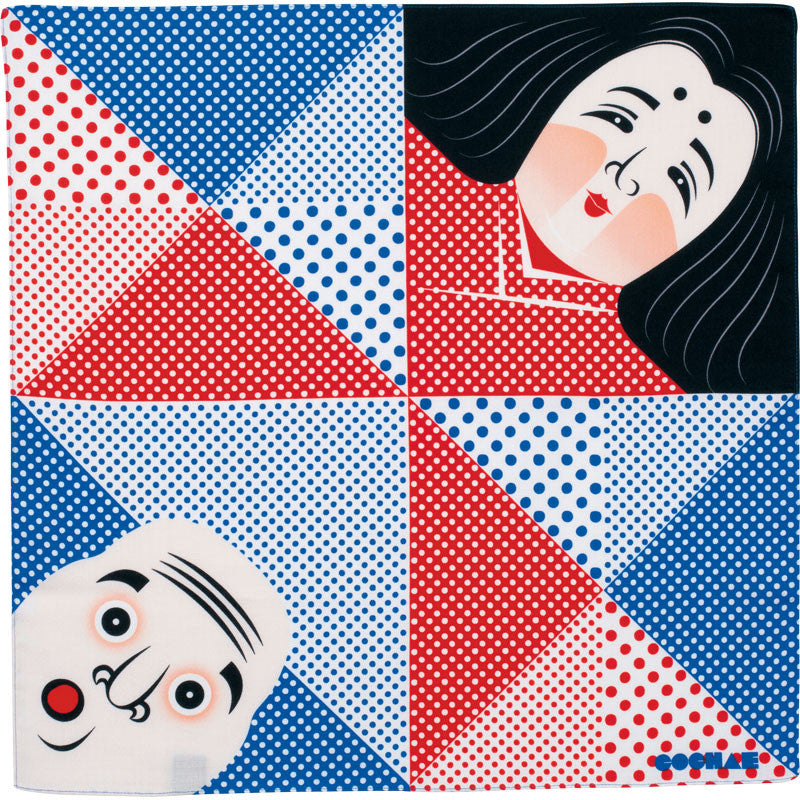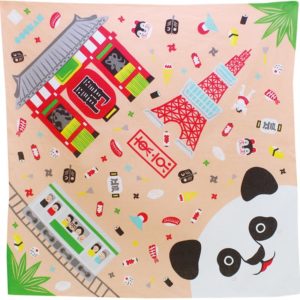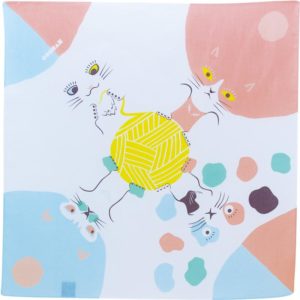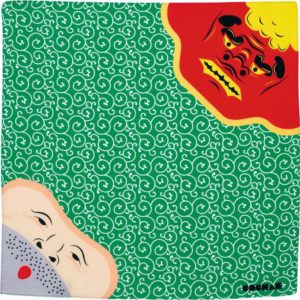Description
Product Description
Okame is a woman. Hyottoko is a man. These comical masks are often sold at Japanese festivals.
Okame is a generous woman who is full-figured and has a small nose and small eyes, allied with an endlessly cheerful disposition. Okame is a traditional image of an everyday Japanese woman. Hyottoko probably sounded like “Hiotoko” or “fireman” in olden times since the job of managing the smelting furnace was an important one. The comical puckered mouth is a defining feature of the Hyottoko mask as the fireman would blow the furnace with his bamboo tube to control the flow of air.
(The dot pattern appearing behind the mask is part of the handle of the hand towel)Depending on where you tie, you can see and enjoy different expressions.
Product Details
- Code : 20464-102
- Dimensions : 48 x 48 cm (18.9″ x 18.9″).
- Weight : 44 g.
- Material : 100% cotton.
FUKU COCHAE
FUKU COCHAE has a Japanese lucky charm (happy motif) printed on a Furoshiki. These unique patterns create enjoyment in opening and wrapping. The face that is seen changes depending on the shape of the wrapping. Wrapping for gift is good but also so is wrapping a lunch box. This series brings a smile to everyday life and a playful Japanese spirit.
COCHAE
Design unit Jikuhara Yosuke and Miki Takeda work on the theme of “playing with play” In 2003, in the classic world of origami, they produced graphic origami with key words “origami is more pop!” Currently they are conducting a wide range of design activities including designing with a new viewpoint, development of toys, workshops at museums and the like.
Origami puzzle “Funny face card” won the Good Design Award 2008.
Since 2008, he is a part-time lecturer at Kyoto Art and Design University. The origin of cochae (quotient) is cited from the traditional folk song “Okayama drum song (Cochaebushi)” of Okayama prefecture where he is from. The word “Kacha-e, Kacha – e” is a slang word popular in the Tenpo era and is a musical accompaniment word with multiple meanings such as “Please come here” and “This is good”




